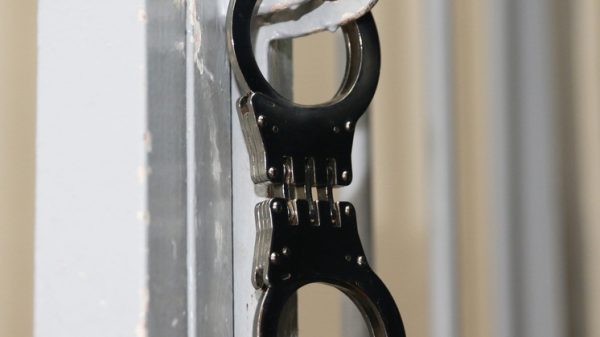 Le Journal du Diamanche staff strikes over Geoffrey Lejeune's appointment as editor. Photo: CHRISTOPHE ARCHAMBO/AFP via Getty Images
Le Journal du Diamanche staff strikes over Geoffrey Lejeune's appointment as editor. Photo: CHRISTOPHE ARCHAMBO/AFP via Getty Images
The appointment of a newspaper editor is rarely featured on the front pages. However, for Le Journal du Dimanche (JDD), a well-known French weekly, a recent change in leadership literally brought the press to a halt.
The newspaper's staff went on strike to protest against Geoffroy Lejeune, a well-known conservative journalist who last week was appointed as the new editor of JDD.
For French liberals, this appointment marks a dangerous new direction for centrist Sunday publication and threatens to usher in a new era of the right. wing ideology.
“For the first time in France since liberation, a major national media organization will be led by a leading figure of the extreme right,” the activists wrote. «This is a dangerous precedent that concerns all of us.»
But the riots that followed the recent strike at Les Echos are just the latest battleground in the showdown between French journalists and a handful of billionaires. which tighten control over the country's media.
JDD, owned by Lagardère, confirmed Lejeune's appointment on Friday. Employees say they learned about the move from a press release, not from internal communication.
At just 34, Lejeune has established himself as an outspoken journalist and commentator on the far right in French politics. In 2016, he rose to the top of the political magazine Valeurs actuelles, becoming France's youngest editor-in-chief.
He is friends with Marion Maréchal, granddaughter of the founder of the National Front, Jean-Marie Le Pen, as well as with far-right politician Eric Zemmour. Lejeune even wrote a novel that portrays Zemmour as president. But Lejeune's political views and his focus on issues such as Islam and immigration have sparked growing controversy.
Mujtaba Rahman, managing director for Europe at the Eurasia Group, describes him as a «polemicist and provocateur, not a journalist» .
 French journalist Geoffroy Lejeune caused controversy due to his political views and his leadership of the political magazine Valeurs actuelles. Photo: JOEL SAGET/AFP via Getty Images. depicted a black deputy as a slave. Earlier this month, Lejeune was fired from his position.
French journalist Geoffroy Lejeune caused controversy due to his political views and his leadership of the political magazine Valeurs actuelles. Photo: JOEL SAGET/AFP via Getty Images. depicted a black deputy as a slave. Earlier this month, Lejeune was fired from his position.
Announcing his appointment, Lagardère said: «Geoffroy is an extraordinary talent in French journalism, which we could not ignore.» Lejeune said it was «a great honor» to join the newspaper.
But the new editor was received furiously by journalists. The Society of Journalists (SdJ), representing the staff, called the move «a new level… in refusing dialogue and disparaging those who make the paper.»
They added: «The JDD editorial staff refuses to obey the man, the ideas which is completely contrary to the values of the newspaper.”
Last week, 98% of employees voted to go on strike, which means the paper wasn't the last to come out. the weekend for just the second time in its more than 70-year history.
A meeting between the union and boss Arnaud Lagardère failed to dampen the anger, and a demonstration took place Tuesday evening at the Libre Theater in Paris. The striking workers voted to continue the strike on Wednesday morning.
The weight of the campaign comes from the support of more than 650 people, including former editors, journalists from rival newspapers, politicians and celebrities. In an open letter published in Le Monde, they wrote: «The JDD cannot become a newspaper serving far-right ideas.»
However, the turmoil at the JDD extends far beyond the newsroom. Instead, the arrival of billionaire Vincent Bolloré is at the heart of the controversy.
Through his Vivendi media empire, the 71-year-old is on the cusp of a full acquisition by Lagardère that will solidify his control of not only JDD, but gossip magazine Paris as well. Match and broadcaster Europe 1. Lejeune's appointment was announced shortly after Bolloré's takeover received EU approval.
 Billionaire Vincent Bolloret is looking to expand his French media empire by acquiring Lagardère. Credit: ERIC PIERMONTE/AFP/Getty Images
Billionaire Vincent Bolloret is looking to expand his French media empire by acquiring Lagardère. Credit: ERIC PIERMONTE/AFP/Getty Images
Critics Bolloré, a Brittany Catholic whose wealth is tied to shipping and paper manufacturing, point to a track record of forcing his views on media organizations like Canal+ .
In 2019, he renamed the innocuous news channel i>Télé to CNews, a network modeled on Fox News that helped solidify the careers of Lejeune and Zemmour.
“The media is more center-left, and Bolloré brings the right people to his media and editorial policy, so he is not popular,” says François Godard, an analyst at Enders.
However, Bolloré has also angered mainstream right-wingers in France. as an incumbent far-right dominated by the National Rally party, formerly led by Marine Le Pen.
A coalition called «Stop Bolloré» has emerged with the intention of curbing the billionaire's control of the French media.
Godard adds: «I don't think he believes he will make money from these actions, he does. on political grounds.”
However, Bolloré's tightening of control over the French media does not happen in isolation. It comes amid growing unrest at Les Echos, the financial daily newspaper owned by Bernard Arnault, the world's second-most powerful man.
This month, Les Echos staff went on strike for the first time in 16 years to protest the dismissal of an editor, the relaxation of long-standing independence provisions, and alleged editorial interference by the owner.
Arnaud and Bolloré are not working from the same plays. While Bolloré appears to be driven by politics, Arnault, who owns luxury empire LVMH, has been accused of using his position to stifle any negative coverage of his business interests.
However, the pair does have areas of overlap. Arno is a shareholder of Lagardère, and the billionaires have reportedly signed a «non-aggression pact» pledging not to publish negative stories about each other.
Billionaire Bernard Arnault owns financial newspaper Les Echos in addition to his luxury goods empire LVMH. Photo: LUDOVIC MARIN/AFP via Getty Images. comment.
More importantly, however, the recent strikes reflect deep-seated discomfort with the handful of billionaires who own French media.
This issue has already attracted attention ahead of last year's general election. But an investigation into the multiplicity of media outlets commissioned by French senators has yielded no solutions.
And journalists on the ground are not primarily concerned about who owns them, but how much their editorial control is beginning to weaken. creep.
“This illustrates the problem of ownership of the French press,” says Godard. “Bollore would tell you everyone else is leftist and he brings pluralism… But pluralism comes with independent editorial.”
But Bolloré and Lejeune will not be easily dissuaded from transforming the JDD. On Sunday, French Minister of Culture Rima Abdul Malak tweeted: «From a legal point of view, JDD can be whatever it wants to be if it abides by the law.»
But she added: «But for now, what about the values of our republic , then how can you not worry?


























































Свежие комментарии